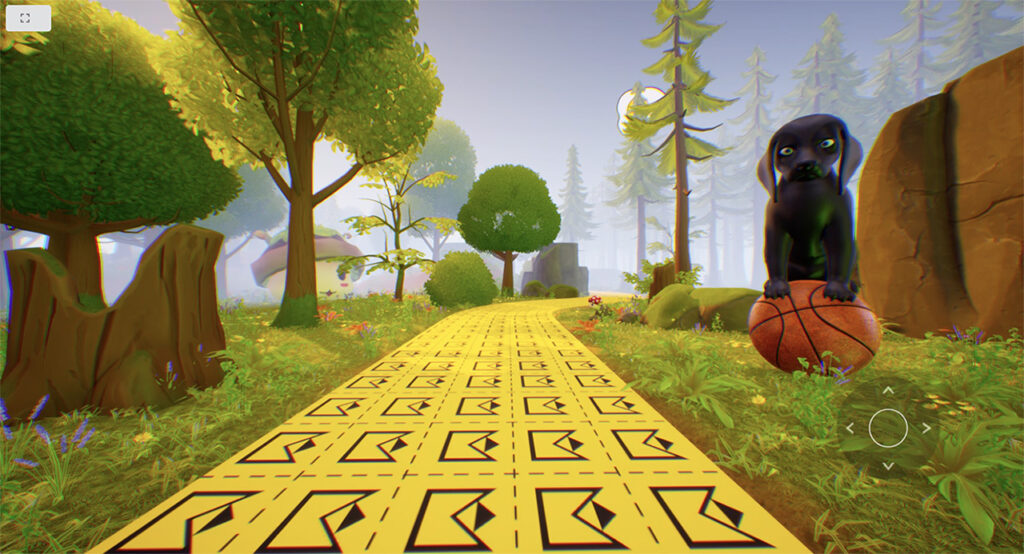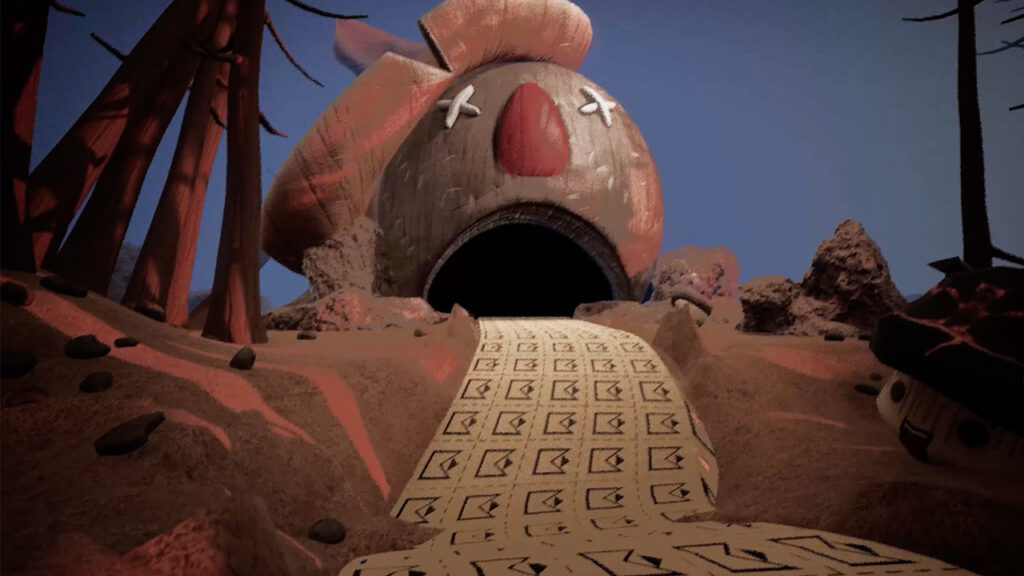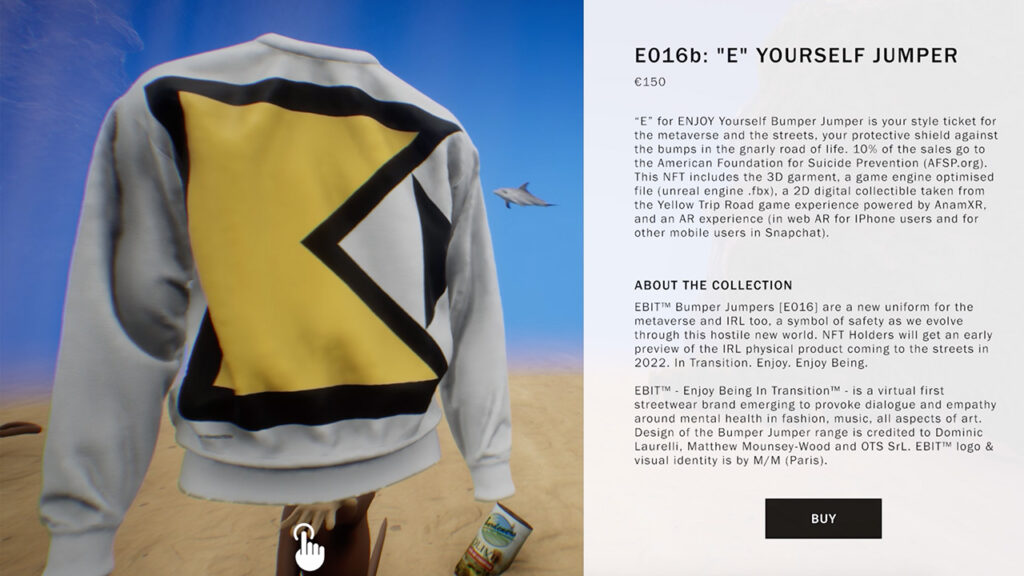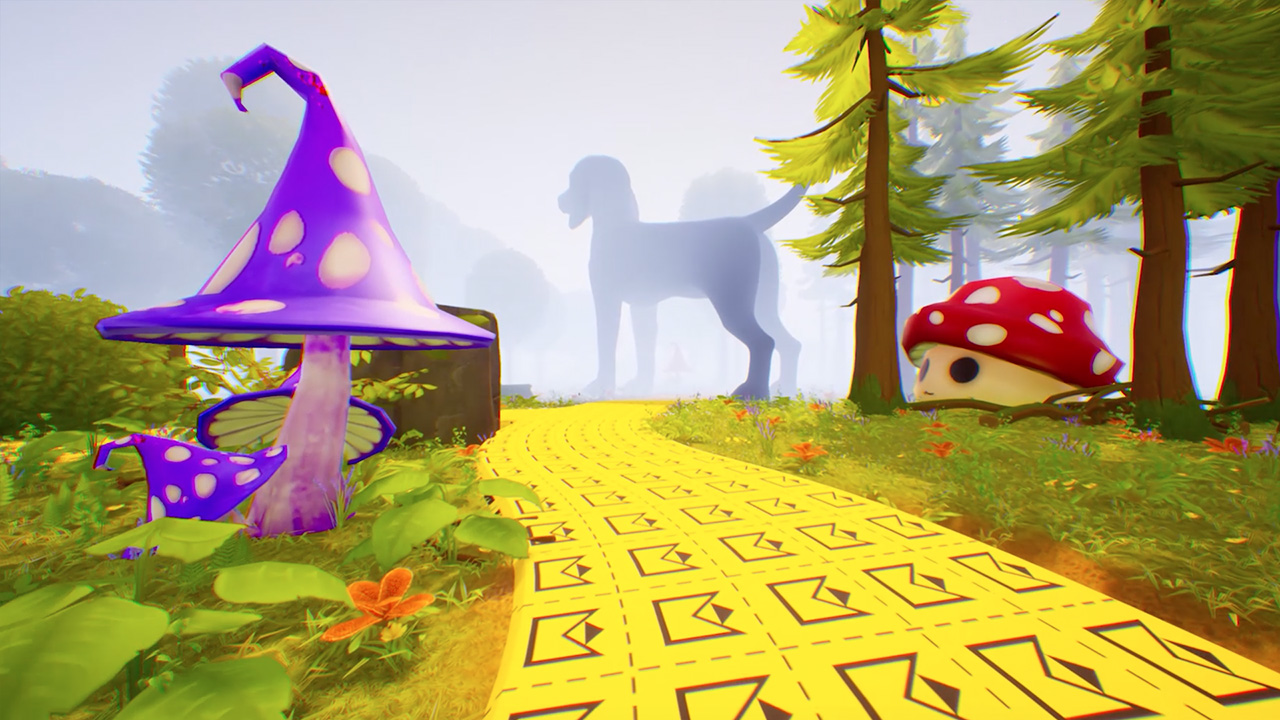The metaverse is fast becoming crowded. In between a digital land boom, multiplying NFT museums, and Facebook’s corporate lean-in, the virtual plane, it seems, is ripe for the picking. But not for everyone. As an antidote to the hypercapitalism that’s recently flooded the metaverse, art collective Enjoy Being In Transition (EBIT) has launched an immersive XR experience guided less by profit and more by purpose.
Unveiled yesterday, Yellow Trip Road invites visitors on a journey down the titular path, which is paved through lush landscapes, desolate wastelands, outer space, and underwater. While a vividly gamified trip that tips its hat to, of course, the Wizard of Oz, the experience additionally serves as a “subliminal visual metaphor of life with depression,” says Simon Whitehouse, Founder of EBIT, in line with the collective’s broader goal to raise awareness about mental health through cultural experiences.


The XR experience cuts through environments from lush landscapes to desolate wastelands, serving as a metaphor for the vagaries of mental illness, with symbols like a black dog representing depression. Images: AnamXR
As Whitehouse tells Jing Culture & Commerce, “EBIT exists to provoke dialogue and empathy around mental health through fashion, music, and various aspects of art.” (Also worth noting: EBIT is a subversion of the financial acronym for Earnings Before Interest and Taxes) The initiative’s previous releases have ranged from mixes by French DJ Michel Gaubert to a postcard project by writer Wilson Oryema. “We do physical things offline,” adds Whitehouse, “and we do pioneering projects in the metaverse.”
Yellow Trip Road, the collective’s first virtual outing, was creative directed by designer Dominic Laurelli and model Soo Joo Park, with music crafted by Johnny Jewel (of Chromatics and Italian Do It Better fame). AnamXR, the virtual developer that has created brand experiences for the likes of Pangaia and Burberry, oversaw the technology build-out, working off storyboards from EBIT and designing the 3D assets on Unreal Engine. The overall production, according to Whitehouse, took up to a year.

Unveiled at the underwater segment of the experience, the Bumper Jumpers are available to purchase as NFTs on THE DEMATERIALISED platform. Image: AnamXR
Virtual fashion platform THE DEMATERIALISED joined Yellow Trip Road much later on the project’s timeline, but has contributed a key element: a range of digital sweatshirts, dubbed Bumper Jumpers and available as NFTs. Visitors encounter them in the underwater portion of the experience, where they’ll have the option to purchase them on THE DEMATERIALISED platform. Buyers receive their virtual jumper in various versions, including in 3D, digitally in 2D, and as an AR experience.
Profit, again, is not the point — or in Whitehouse’s words, “I’m not interested in trying to sell 10,000 things.” Rather, the NFTs go for €150 each and in a limited edition of 300, with 10 percent of sales set to be donated to the American Foundation for Suicide Prevention.
For Whitehouse, a fashion industry veteran who’s clocked experience with brands from JW Anderson to DKNY, the virtual fashion aspect of Yellow Trip Road opens doors to a reimagining of e-commerce as much as the nature of NFTs. Instead of representing a commodity, NFTs could embody “good moral purpose” — in this case, contributing to mental health awareness. EBIT is also planning further NFT-centric projects, with one set to launch early next year, that will benefit similar charities.
Without the pressure to deliver commercially, EBIT has only its mission and artistic calling to answer to — elements that are captured in Yellow Trip Road. The metaverse, Whitehouse notes, offered for him and his collaborators limitless artistic expression, but more so, greater possibilities to engender empathy and support for mental wellness. Which, after all, is the promise of this and any virtual medium. “Because this is virtual, the only limitation is your imagination,” he says. “And that’s the incredible thing about the metaverse, isn’t it?”



